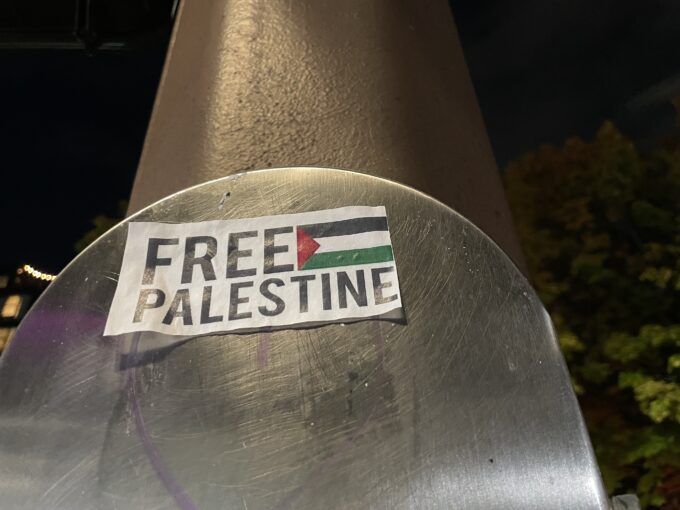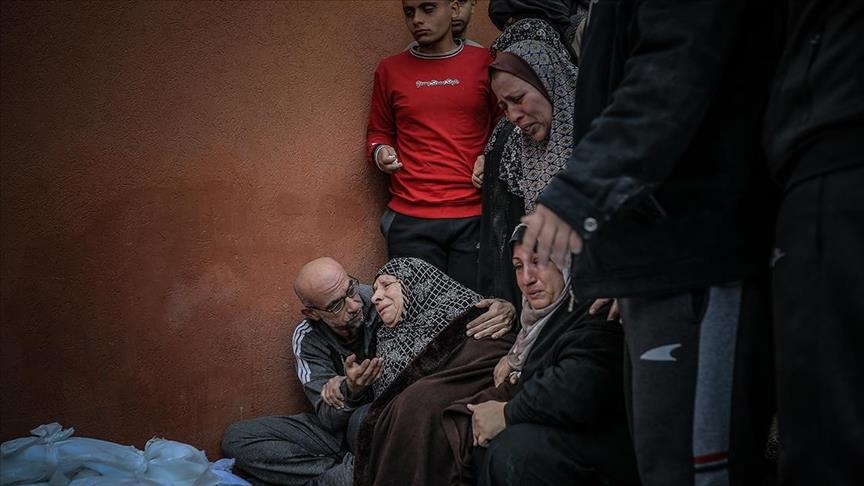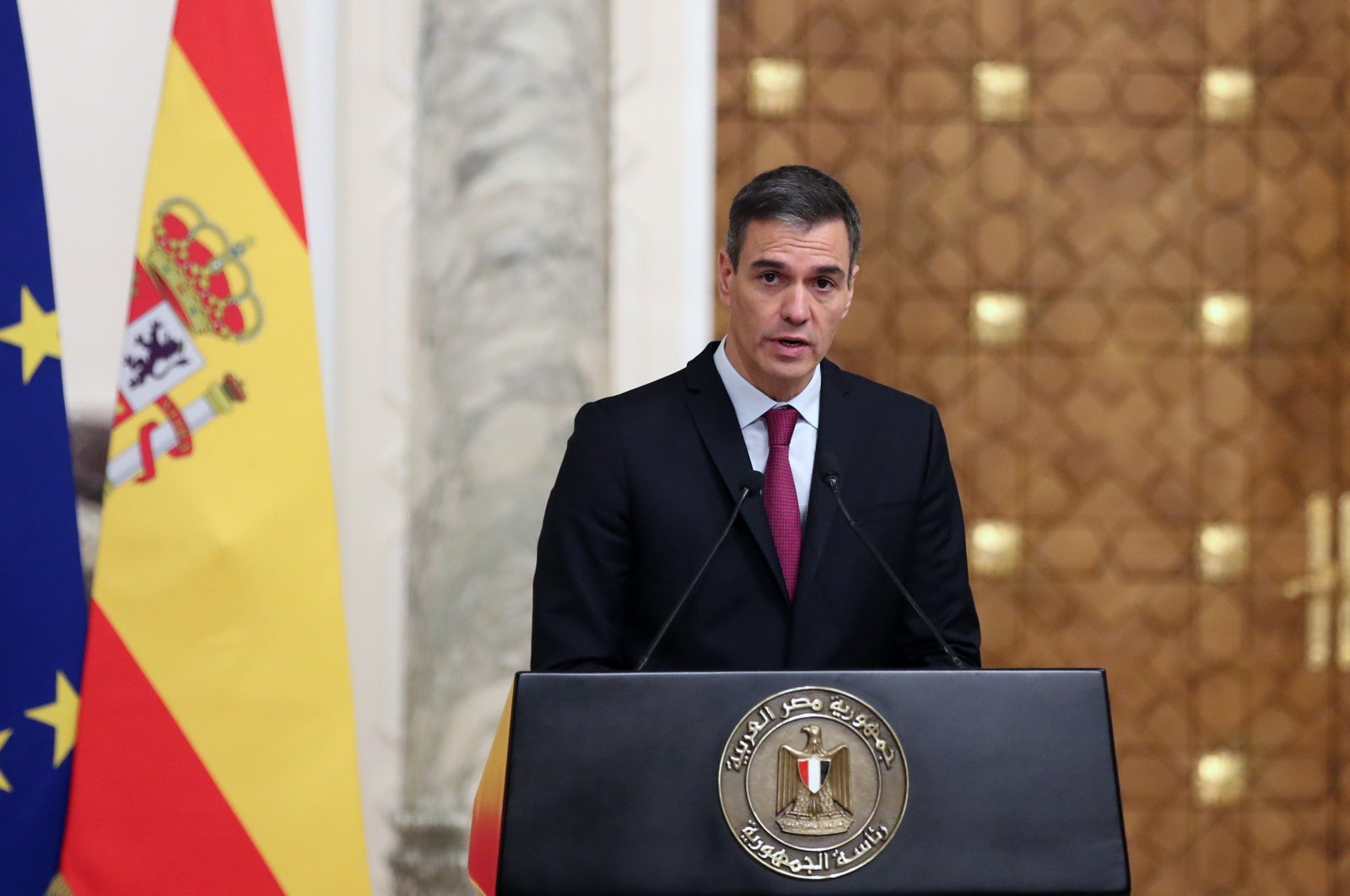






The ongoing conflict in Gaza has led to diplomatic tensions between Israel and Spain/Belgium. The Israeli Minister of Foreign Affairs summoned the ambassadors of Spain and Belgium to Tel Aviv after they criticized Israel's actions and called for a permanent ceasefire and recognition of the State of Palestine. This move comes as several countries, including Colombia, Bolivia, Chile, Honduras, and Turkey, have already severed diplomatic relations with Israel in solidarity with Gaza. Israel maintains that Hamas bears responsibility for the crimes committed in Gaza. While a temporary humanitarian ceasefire is in place, tensions between Israel and other countries continue to escalate.
In a new development, the leaders of Spain, Belgium, Ireland, and Malta have written a joint letter urging the President of the European Council to take a decisive stance on the situation in Gaza. They emphasize the need for a dedicated discussion on Gaza and a commitment to a two-state solution during the upcoming EU Council summit. The letter also calls for addressing the humanitarian crisis in Gaza, advocating for a lasting ceasefire, the protection of civilians, and the unimpeded delivery of aid. The leaders condemn the Hamas attacks and recognize Israel's right to defend itself. Spain and Belgium, which will soon assume the EU presidency, are leading the effort [64d67a46].
The Prime Minister of Spain, Pedro Sanchez, announced that Spain will unilaterally recognize an independent Palestinian state, even if the European Union (EU) does not. Sanchez stated that while the ideal scenario would involve recognition from multiple EU member states, Spain is prepared to make its own decisions if necessary. The Barcelona City Council has also approved a declaration suspending relations with Israel until a permanent ceasefire is achieved in Gaza. Other members of the Spanish government have called for severing ties with the Benjamin Netanyahu government. Prime Minister Sanchez visited Israel and Palestine to meet with local counterparts and criticized Israel's response to the attacks, describing the situation in Gaza as a 'humanitarian catastrophe.' Spanish, Belgian, and Egyptian leaders have urged Israel to make the humanitarian pause in Gaza permanent and have discussed creating momentum for an international peace conference towards a two-state solution.
During the 47th conference of the European Coordination of Support and Solidarity with the Sahrawi People (EUCOCO), held in Toledo, Spain, participants emphasized the need for international support for the Sahrawi and Palestinian peoples. The Prime Minister of the Sahrawi Arab Democratic Republic (SADR), Boucharaya Hamudi Beyun, called on the Spanish government not to adopt Morocco's position and to support the right to self-determination of the Sahrawi people. The conference also criticized the double standards of European nations in managing global conflicts and called on the UN Security Council to implement resolution 1514 regarding the right to self-determination of colonized peoples. A bill has been proposed in the Spanish Congress to grant Spanish citizenship to Sahrawi individuals born during the period of Spanish administration of Western Sahara. The conference aimed to express disagreement with Spain's position on Western Sahara and promote solidarity with all peoples fighting for their dignity, fundamental rights, and freedom [a073b4fc] [37e0f3da].
Latin American and Caribbean countries have expressed solidarity with Palestine and criticized Israel's attacks on Palestinians in Gaza. Chile, Belize, Peru, Bolivia, Honduras, and Colombia have all condemned Israel's actions, with Bolivia severing diplomatic relations and Honduras and Colombia recalling their ambassadors. Cuba and Venezuela have also cut relations with Israel. Most countries in the region recognize Palestine and have sent aid to Gaza. However, El Salvador's president, Nayib Bukele, and Argentina's new president, Javier Milei, have shown support for Israel. Israel has had close military relationships with several Latin American countries, including Colombia, Nicaragua, Haiti, Paraguay, Chile, and Brazil. Israel has trained, supplied, and advised militaries in multiple countries in the region. The evangelical Christian movement in Latin America, which views Israel as important to their theology, is becoming an influential political force. In a recent United Nations General Assembly vote, only Guatemala and Paraguay in Latin America voted against a resolution supporting Gaza, while the rest of the region supported it [3612311c].
Latin America and the Caribbean remain a stronghold of support for Palestinian freedom. Factors such as large Arab diasporas and small pro-Zionist Jewish populations contribute to this stance. Israel is seen by many in the region as a proxy for the United States, which has historically supported Israel. The countries in Latin America and the Caribbean that have expressed solidarity with Palestine view Israel's actions in Gaza as part of a broader pattern of US imperialism and interventionism. This perspective is further reinforced by Israel's history of close military relationships with several Latin American countries, including training and supplying militaries and death squads. The region's support for Palestine is also driven by a commitment to self-determination and the recognition of the Palestinian people's right to sovereignty and freedom [f7b8763d].
The pro-Israel orientation of Pacific states has drawn attention to the intensely Christian character of these island societies. The article explores the role of kinship in Pacific Island cultures and how it contributes to their support for Israel. Kinship is a fundamental aspect of Pacific societies, dictating access to material benefits and regulating communities. The article suggests that Pacific peoples, whose ways of life are built on gaining benefits through family and kinship, have incorporated Jewish people and the state of Israel into their kinship networks. This connection between kinship and Israel influences the diplomatic decision-making of Pacific politicians. The article also mentions the recent promises of substantial aid money from the United States, Israel's strongest ally, which may have strengthened the pro-Israel stance of Pacific nations. However, it remains to be seen whether this support will continue as international support for Israel wanes [4d83cb91].
Spain has announced its decision to join the procedure initiated by South Africa against Israel in the International Court of Justice for genocide. The Minister of Foreign Affairs of Spain, José Manuel Albares, stated that this decision is based on a document expressing Spain's intention to intervene in the procedure and provide support to the court's work and precautionary measures. Spain will provide interpretative elements to help the court when issuing a sentence. The President of the Government, Pedro Sánchez, has also defended Spain's decision and described it as 'urgent' to support international justice bodies in stopping the bloodshed. Other European countries, such as Ireland and Belgium, have also indicated their intention to intervene. The last country to join the procedure was Chile. Spain's decision does not mean supporting any of the parties but rather assisting the judges in making a decision. The Israeli Foreign Ministry ordered the Spanish Consulate in Jerusalem to stop providing consular services to Palestinians in retaliation for Spain's recognition of the Palestinian State. Israel has announced punitive measures against Spain. [e0ea3c63]